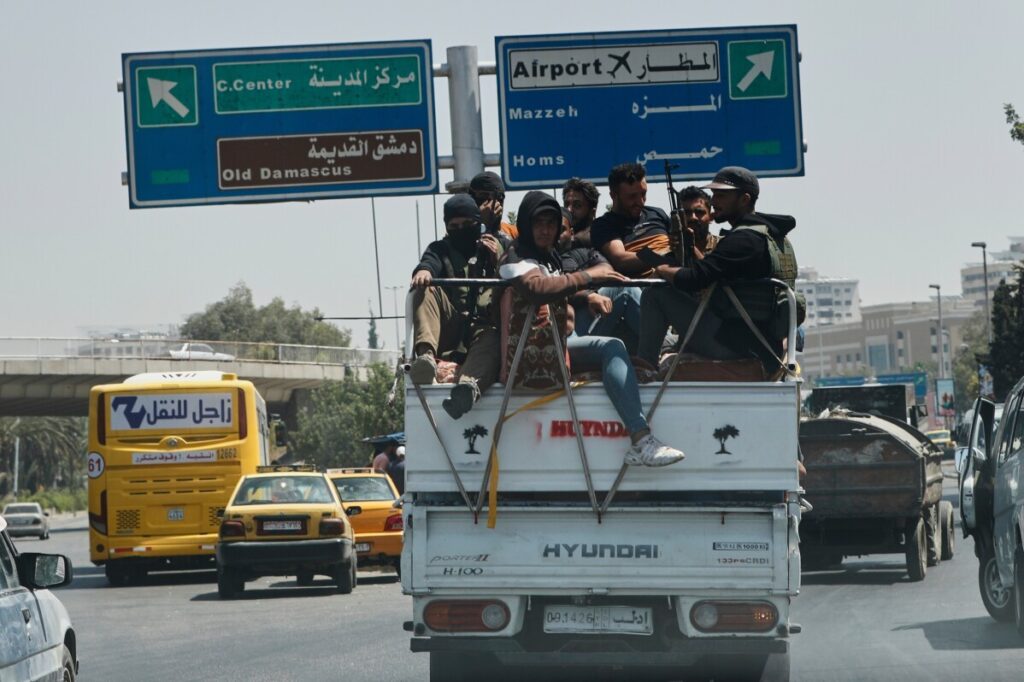Syria’s Druze-Bedouin Clashes Expose Fragile Governance and Threaten Regional Stability
After deadly Bedouin-Druze fighting in Syria’s Sweida, a fragile ceasefire reveals the dangers of weak governance and sectarian violence that threaten regional stability and America’s strategic interests.

The recent withdrawal of armed Bedouin clans from the Druze-majority city of Sweida marks only a temporary pause in what has been a violent eruption of tribal conflict with profound implications for Syria’s stability—and by extension, American national security.
For over a week, clashes between Sunni Muslim Bedouin militias and Druze factions have left hundreds dead, ravaging communities already scarred by years of civil war. This brutal infighting does not merely represent localized tribal vengeance; it underscores Damascus’ failure to assert effective control over its territory and thwart sectarian violence—a vacuum that threatens to empower hostile actors on America’s doorstep.
How Long Will Weak Governance Invite Chaos and External Interference?
The Syrian government’s inability—or unwillingness—to maintain law and order amid these clashes allowed Israel to launch multiple airstrikes targeting pro-Bedouin government forces. While Israel rightly defends its security interests against Iranian-backed militia entrenchment near its borders, Washington must consider how this volatile environment risks further regional escalation.
The Bedouins’ withdrawal under a U.S.-brokered ceasefire reflects American diplomatic efforts to stabilize the situation, but it also exposes the fragility of any peace imposed without real authority on the ground. Interim President Ahmad al-Sharaa’s appeals for calm highlight Damascus’ tenuous grip on power—his contradictory stance towards different militias signals competing factions rather than unified governance.
Sectarian Violence Threatens National Sovereignty and Regional Security
Reports of cultural desecration—such as destruction of Druze religious imagery and humiliation inflicted upon elders—are not isolated acts; they reveal an alarming erosion of respect for minority communities essential to Syria’s social fabric. When state actors are complicit or ineffective in preventing such abuses, it undermines national unity and fuels resentment that can spiral into wider conflict.
This unrest takes place amid Syria’s broader postwar transition, which had shown cautious signs of progress before these events overshadowed hopes for normalization. U.S. envoy Tom Barrack’s call for all factions to lay down arms is urgent—but will Washington’s current policies sufficiently promote durable peace that respects Syria’s sovereignty while containing extremist factions?
From an America First perspective, instability across the Middle East directly impacts U.S. security interests: unchecked violence invites Iran-backed proxies closer to Israeli borders, exacerbates refugee flows destabilizing Europe (and indirectly our own southern border), and weakens prospects for regional allies.
It is clear that without firm insistence on restored Syrian sovereignty free from militias acting as proxies for foreign agendas, the cycle of violence will continue. Moreover, humanitarian aid convoys—though lifesaving—only address symptoms rather than root causes.
How long will Washington tolerate half-measures while watching Syria slip deeper into chaos? True peace requires strong state institutions capable of protecting all citizens regardless of sect or tribe—something neither Assad nor his fragmented rivals can currently provide.
Americans must demand policies that prioritize lasting stability through empowerment of legitimate governance aligned with national sovereignty—not endless international meddling with fleeting ceasefires.
